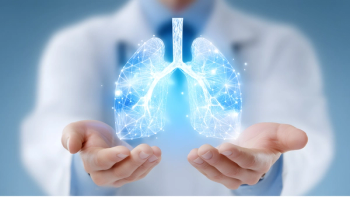
While QOL Preferences Can Be Different, Lung Cancer Resources Can Match Patient Needs
Susan Smedley, national manager of community fundraising and endurance events at GO2 Foundation for Lung Cancer, discusses quality of life in lung cancer, and ways patients can communicate preferences to their health care providers.
Kristie L. Kahl: How can side effects, either from treatment or the cancer itself, affect the day-to-day life of a patient with lung cancer?
Susan Smedley: In a myriad of ways, certainly physically, depending on the treatment. There can be side effects like fatigue, nausea, pain from the cancer itself, headaches if there have been metastasis to the brain, etc. The day-to-day, how you're feeling, can really be impacted, but also emotionally. You know, feeling like you've lost touch with your life with who you were before you heard those words, “You have lung cancer.” Emotional (effects can include) anxiety, fear, just feeling separate and isolated, sadness, etc. And we find that those side effects, certainly the emotional ones, can continue even many years after treatment has ended.
Kristie L. Kahl: With all those different types of side effects, what are we doing to manage them in order to improve quality of life?
Susan Smedley: Quality of life certainly means different things to different people. The first place to start is your physical (quality of life), how you're feeling. And care providers have a lot of resources for managing nausea for managing fatigue. But there are also other resources that are available. (Go2 Foundation for Lung Cancer) has a whole section on our website around supporting people who've received a diagnosis, and provides different resources around managing those side effects.
I believe that there's more and more awareness that this is impacting people wanting to continue treatment. And it can really impact the outcome of someone's treatment. So, we want to make sure that people know, if you're feeling not good, please reach out either to us at Go2 Foundation. Our support line can get you matched up with resources to help you manage them, or your care team as well.
Kristie L. Kahl: How does maintaining a healthy lifestyle play a role in improving that quality of life?
Susan Smedley: Oh, it makes such a difference. And we're really interested in looking at how we, as an organization, can help support people to do that as well. (American Cancer Society) has released guidelines, basically saying that, for cancer patients of any type, they recommend at least 150 minutes of moderate exercise a week. That's two-and-a-half hours. I think most people who haven't had a diagnosis aren't achieving that. And the reason that they're recommending that is because movement helps to stimulate the different body systems, whether it be respiratory, lymphatic, cardiovascular, etc., to help strengthen the body, help remove toxins, etc. Also emotionally and mentally, movement helps.
Kristie L. Kahl: We talk a lot about the multidisciplinary approach to cancer care. Can you talk about integrative medicine and palliative care and how that's playing a role in lung cancer now?
Susan Smedley: There's misnomers about palliative care that it only is for people who are at end of life. And that's simply not the case. Palliative care, it refers to a network of professionals who are an additional layer of support for someone going through treatment, or for their family.
And that can be physical, maybe offering additional meds. It can also be encouraging movement. It can be offering support to children in the family, offering support to care providers, looking at the financial impact, looking at making plans for life shifts. Just having some of those conversations.
As a lung cancer survivor myself, we think about these things anyway. And to not to have conversations about, you know, the elephant in the room, can be really detrimental. And so palliative care can be professionals who are used to having some of those conversations, regardless of where you're at in your treatment.
Kristie L. Kahl: Why is patient-physician communication important? And how can we help our patients improve that communication?
Susan Smedley: I really believe that empowering folks who've received a diagnosis and their loved ones with information is huge. You really want to be the driver in your own care. I mean, certainly you don't have all the skill sets, you haven't gone to medical school, but you're the expert on you. We want to make sure that people know what to expect, questions to ask.
We have lots of resources on our website. We also have our support line, and one of my colleagues even meets with people and looks at their treatment plan and helps them come up with questions, like next steps. So you know, educated patients live longer and better lives and we want to be that conduit for that information in very layman's terms that even I can understand.




